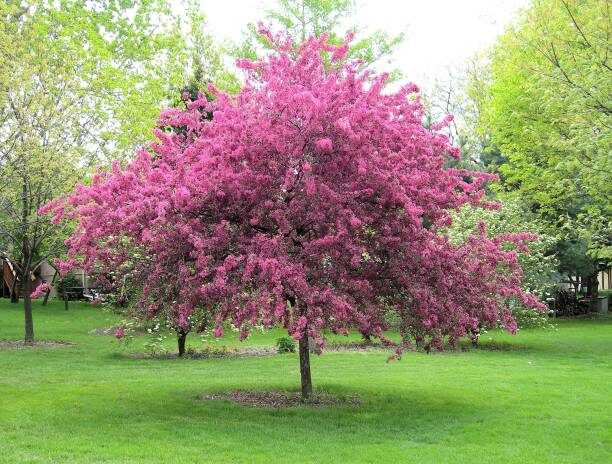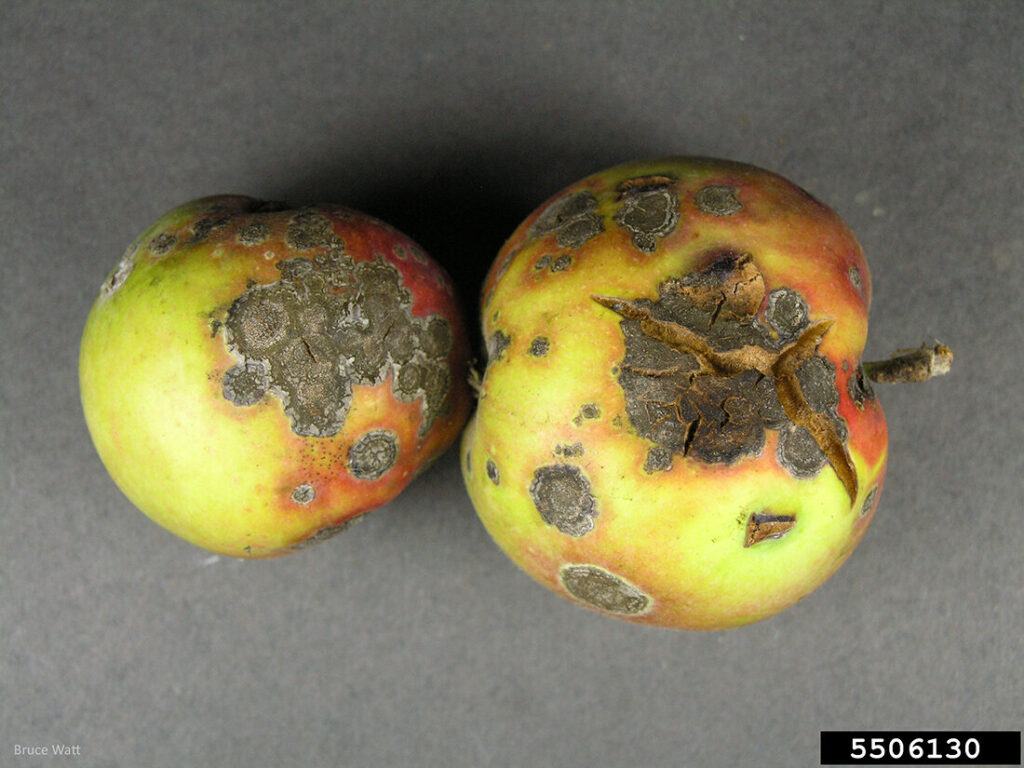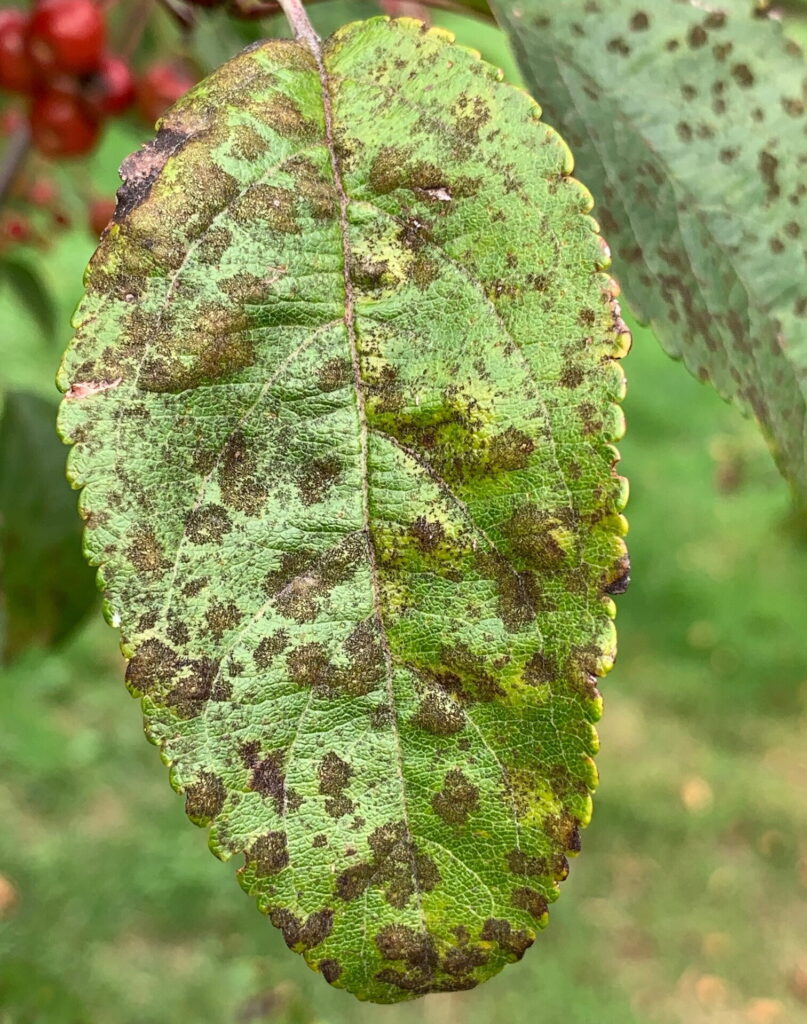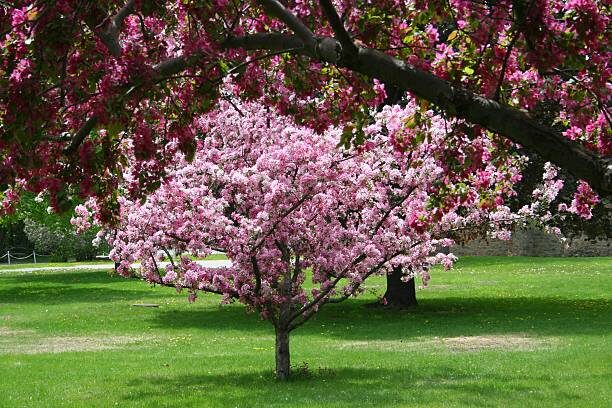With spring just around the corner in Illinois, it’s time to start thinking about how to protect your crab apple trees from seasonal threats. One of the most common and destructive diseases affecting these beloved ornamental trees is apple scab. This fungal infection can lead to unsightly leaf spots, early defoliation, and weakened tree health. Fortunately, proactive care, including properly timed spray treatments, can help keep your crab apples looking vibrant and healthy all season long.
Why Crab Apple Trees Are Popular in Illinois
Crab apple trees (Malus spp.) are a staple in Midwestern landscapes, admired for their stunning spring blossoms, colorful fruit, and overall aesthetic appeal. Their ability to withstand cold winters makes them a great choice for Illinois homeowners. However, while some newer cultivars have been bred for disease resistance, many older and traditional varieties remain highly susceptible to apple scab.
Apple scab thrives in cool, wet conditions, which makes Illinois’ unpredictable spring weather a prime time for infection. The disease spreads quickly if left untreated, leading to leaf loss and a stressed tree that is more vulnerable to other environmental challenges.

What is Apple Scab?
Apple scab is caused by the fungus Venturia inaequalis, which overwinters in fallen leaves and releases spores in the spring. These spores infect new leaf growth, especially during periods of frequent rain and mild temperatures. Once established, the disease can spread rapidly, affecting both leaves and fruit.
Common Symptoms of Apple Scab:
- Dark, olive-green or brown spots on young leaves, sometimes with a velvety texture.
- Yellowing leaves that drop prematurely, often leading to severe defoliation by mid-summer.
- Scabby, dark lesions on fruit, making them unattractive and unhealthy.


While apple scab does not usually kill crab apple trees outright, repeated infections can weaken them over time, reducing their ability to withstand other stressors like drought, pests, and extreme temperatures.
Spring Spray Treatments for Apple Scab
One of the most effective ways to prevent apple scab is by applying protective sprays in the early stages of tree growth. These treatments help prevent fungal spores from infecting new leaves. Because the disease spreads most aggressively during wet conditions, a properly timed spray program can significantly reduce its impact.
Fungicide sprays work best when combined with good cultural practices that promote tree health. While sprays provide a layer of protection, they are most effective when used as part of an integrated approach to disease management.
Best Cultural Practices for Disease Prevention
Although spray treatments are an essential part of apple scab management, additional steps can help minimize the risk of infection and improve tree resilience:
- Maintain Good Sanitation – Apple scab spores overwinter in fallen leaves, so raking and disposing of leaf litter in the fall can significantly reduce reinfection the following spring.
- Improve Air Circulation – Pruning your crab apple trees to remove dense, overcrowded branches allows for better airflow and quicker drying of leaves after rainfall, making conditions less favorable for fungal growth.
- Monitor Weather Conditions – Wet springs create ideal conditions for apple scab. Keeping an eye on weather patterns can help you anticipate when prevention methods are most needed.
Keep Your Crab Apple Trees Healthy This Spring
Spring is the ideal time to take proactive steps against apple scab. By combining strategic spray treatments with cultural practices such as pruning and sanitation, you can keep your crab apple trees healthy, beautiful, and thriving throughout the growing season.
If you’re unsure about the best approach for protecting your trees, Homer Tree Care is here to help. Our expert arborists can assess your trees, recommend effective treatments, and provide the care needed to maintain a stunning and healthy landscape. Contact us today to schedule a consultation and ensure your crab apples receive the best protection this season!

